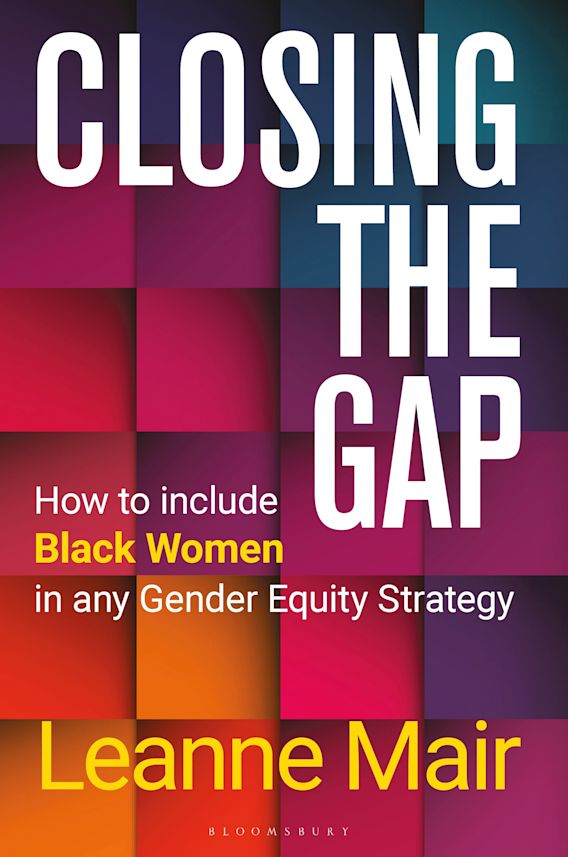This will be a difficult book to read for most people – two reasons. One, it highlights the stark truth around the current state of equality for black women in the workforce and, two, it will contain many examples that black women will find only too familiar. Therefore, it’s critical that we ALL read it. Closing the Gap isn’t aimed at helping black women find success in the workplace. It’s not written for black women. It’s aimed squarely at those people in organisations that can make the biggest impact on the current state of inequity.
But, author Leanne Mair has managed to steer this away from being a book focused on criticism and blame. Quite the opposite. She’s written one of the most useful, in-depth guides to building equality that I have read in recent years. Yes, it squarely places the issue into the hands of those that lead and shape the organisation’s culture, but it does it in a measured ‘things are eminently possible’ way. That said, you can’t hide from the facts, and some, such as the stats around promotions for black women and managerial support, are very damning for the modern workplace.
Throughout the book, there’s a clear message of integration – coaching, leadership development, ERGs, representation – Mair sets out arguments that organisations should be building holistic approaches to racial and gender equity, not delivering well-meaning but off-target solutions that marginalise black women, or actually cause harm by papering over the real issues (or missed opportunities).
A core element for the book is power – opening up the layers of it within an organisation, and exploring what it means to both have or lack it. A spotlight is shone on the situation whereby organisations are still very much geared towards white men, and how they have a number of invisible benefits over any other group. In Mair’s view, the ‘playing field’ around job opportunities is nowhere near level (according to the UN, it’s going to take 300 years to sort it out… that is NOT a typo) and women (particularly black women) are having to compete with very different terms. It would be easy to demonise the workplace elite, but the author avoids this – setting out the situation in a balanced fashion, and focusing on what can be done to address the balance.
Within the book, there’s a number of proof points that state clearly why employers should be valuing and nurturing black women. They are hard-working, well educated, bright and committed to success (statements borne out by clear stats). Black women are also driven to make a difference, and are the most active participants in ERGs and any work around building more equity. Sadly, as Mair outlines, this can lead to them being seen as dogmatic or argumentative. They are not. But they are witnessing little, if any change. Mayer explores the concept of the ‘strong black woman’ and looks at how issues such as mental health are side-lined in an effort to appear capable, and not look weak. Black women don’t burn-out… it’s career suicide. I warned you, this book will catch you unawares with insights such as this – it’s not easy reading. In some places it’s downright worrying.
But, Mair keeps it all on track. The latter part of the book focuses on making the theoretical practical. Her starting advice is simple – assume you know nothing, and build from there. She eschews data driven research and advocates more fundamental techniques: listening, building trust, consistency of actions. The book finishes with pages of practical advice, some super specific, some organisation-changing in its outlook.
Whilst the topic is focused on black women, this book sets out a roadmap for any organisation to build an equity strategy that covers all aspects of a diverse workplace. It outlines a central ethos and strategy that shifts the emphasis from the individual to the organisation, and puts the stepping stones in place to make it work. The book shocked and saddened me in places, but also gave me hope that there is a way forward, and we don’t have to wait until the year 2323 to see things fixed.
Published by Bloomsbury
Chris Preston is a culture expert and one of the founding partners of The Culture Builders







